#character ai animal
Explore tagged Tumblr posts
Text
European Hedgehog (Character AI)
I created an European Hedgehog Character Ai, who is friendly and energetic for a hedgehog, it loves to meet new people and spend time with them!
🦔Hedgehogs are one of my favourite animals. They are have a rather introverted lifestyle. So I created a personality more friendly and playful than the real ones, based on my impression of my IKEA toy hedgehog! They are so cute! Have fun! Do enjoy playing with my little cutie!
#character ai animal#hedgehog#cute hedgehog#🦔#European hedgehog#Endangered animal#character ai hedgehog
0 notes
Text
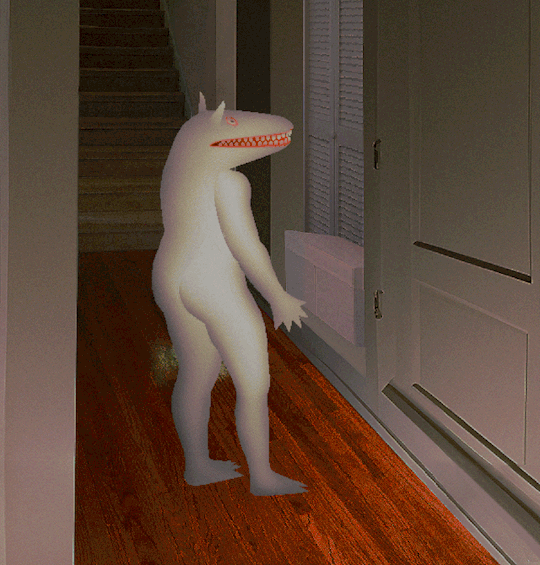
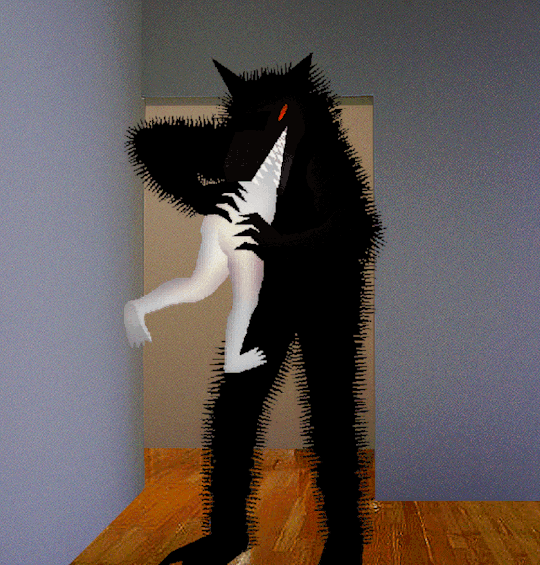
Video game I saw in a dream. It was in this low poly style like an older video game. You play as this character I think was meant to be a lamb, or maybe a weird mix of a lamb a mouse and a rabbit, (while not really looking like any of those things) and you’re running away from a wolf. Your objective is to last as long as possible before the wolf catches and eats you.
The house you’re running in is endless and bizarrely put together like most building interiors in dreams are (like the infinite toilet dream dimension on Reddit lol) the layout of the house is pretty detailed, you can stop and hide in places like closets or bins while the wolf looks for you, you can go up and down stairs and into rooms etc.
You never actually know where the wolf is or how close it is to you until it appears in your line of sight, it makes no noise and the game gives you no way of knowing where it is, and it’s pretty unpredictable it doesnt move at a consistent pace. When the wolf catches you there’s an animation showing it eating your character
#the actual animation of the wolf eating your character wasnt scary he kind of just cartoonishly swallows the character whole lol#the scary part is being pursued by him and never knowing how close he is#i remember being surprised when i first saw the game bc it was presented to me as#a fun addictive sort of game kinda like a mobile app game#and then i see it and its a horror game and the creators are just completely oblivious to it lmao#dream art#<- thats my tag for all my dream-inspired art#art#gif#photomanipulation#digital art#liminal#weirdcore#used a mix of ai photos and regular photos for this one#the ai stuff is sooooo good for recreating what a dream looks and feels like#but i didnt use it too much bc i wasnt able to get the specific photos i wanted :/#hmmmm this is vore isn’t it
25K notes
·
View notes
Text
humanising a machinegirl by treating her like a person: based
"humanising" a machinegirl by turning her into a generically pretty waify anime girl: killing you with a hammer until you are dead
#🐉#people in my inbox thinking VAL was an ai got me thinking about this. i would NEVER do that to our beautiful machines.#not that my VAL design is a generic anime girl but she isnt the most original unbiased character design ever either
5K notes
·
View notes
Text
Why can’t one of my fictional men spawn in my room and fuck me senseless feed me with their cum make me gasp for air pound me vertically horizontally idc I need them on me in me under me fucking however they want ankles behind ears type of fucking big bulge on my belly from their cocks type of fucking yk thank you bye pound my pussy please
#itto smut#jean kirschtein smut#aot smut#sett league of legends#league of legends#reiner smut#jean smut#berserk smut#genshin smut#genshin impact#character ai#pound my pussy#pound town#bakugou smut#eren smut#felix smut#xiao smut#aot x reader#league of legend art#anime#heartsteel#gojo smut#geto smut#choso smut#jjk toji#jjk smut#sakuna x reader#stepdad toji#toji smut
4K notes
·
View notes
Text
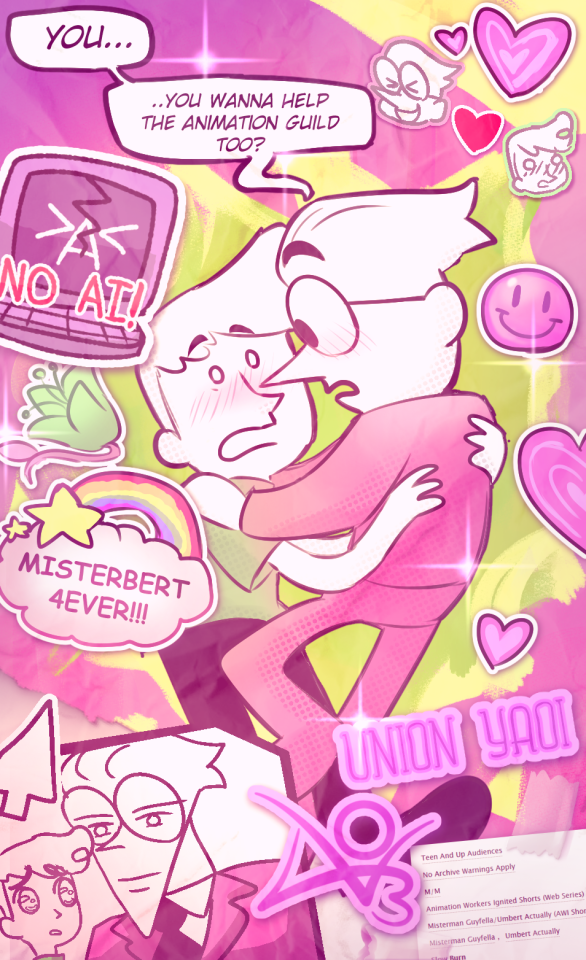
i should probably drop this on tumblr on its own huh. if you told me a year ago that a project my favorite comedian is on would spawn a full-on labor movement powered by yaoi fanart i wouldve probably beaten you to death with rocks anyways pay your yaoi tax
#stand with animation#no ai#union yaoi#stay tooned#animation workers ignited#umbert actually#misterman guyfella#if i had a nickel for every time adam conovers endorsed/been fine with a gay ship of his likeness with a fictional character...#last time it was wario. never change funny ruining guy
2K notes
·
View notes
Text
I swear fictional characters has made my expectations so high that I think I might die alone, because tf am I gonna do when someone asks me what my type is? Oh my bad, I'm into pixels and animated drawings. Hbu?🥰
#genshin impact#genshin#kinich and ajaw#kinich imagines#kinich x reader#kinich#genshin impact imagines#genshin x reader#k'uhul ajaw#honkai star rail#adventurine#sunday hsr#sunday x reader#wanderer x reader#scaramouche x reader#kazuha#soshiro hoshina x reader#hoshina soshiro x reader#genshin venti#anime#mha#mha x reader#blue lock x reader#wind breaker x reader#genshin smut#genshin men#albedo#aether#character ai#citlali
593 notes
·
View notes
Text

Hasumi Hanekawa | Blue Archive
AI Illustration 🎨
Original Work 💯
Re-blogging is highly appreciated 💕
#anime fanart#digital illustration#ai waifu#anime#anime woman#hanime#artists on tumblr#artwork#digital art#ai illustration#blue archive#hanekawa hasumi#blue archive fanart#game character
583 notes
·
View notes
Text
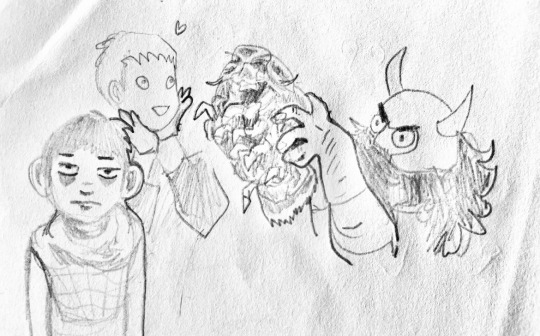
I haven’t watched Dungeon Meshi, but I always enjoy the dashboard osmosis experience and have a peculiar visual memory. Here is what I believe Dungeon Meshi to be mostly about. No complicating experiences with the text, or indeed character references, fed into this extremely clear vision, which I believe I torrented directly from the astral plane at the same time as the creator was logged on
#dungeon Meshi#I think#features Bilbo#This GUY#and Meshi.#this isopod is mostly what I wanted to be doodling.#interesting to me that#the hobbit’s scarf and jerkin are very clear in my memory#and also the Skyrim helmet#but no idea what This Guy is actually wearing so I think I THINK it’s very cunty bishop#sleeves. you know like lantern sleeves.#I love them actually#it’s interesting what you absorb from#scrolling the dash passively when mutuals are into a new#thing#feels a bit like how AI must feel when consuming and regurgitating content!#also it’s obvious that the creator(s?) have developed a VERY visually distinctive character set that can be picked up on instantly#super unusual for anime right? normally they all have the same face?#so it’s quite cool to scroll past an anime with distinctly different faces in it#not to mention body types
807 notes
·
View notes
Text




#art#cyberpunk#scifi#cgart#character design#mecha#evangelion fanart#evangelion art#neon genesis evangelion#anime and manga#Asuka#ai art generator#ai image
662 notes
·
View notes
Text



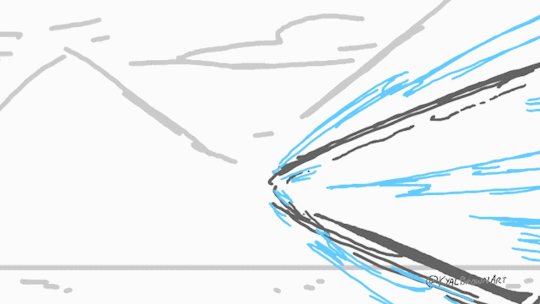
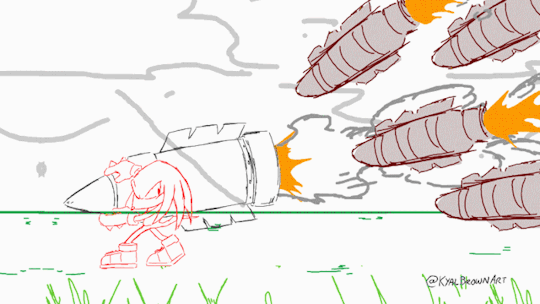
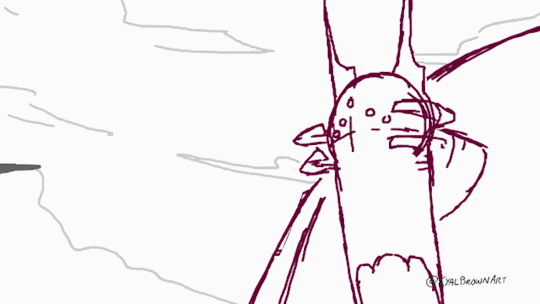

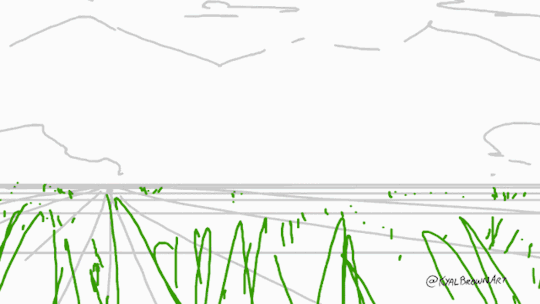
A late follow-up on Tumblr... but a good excuse for a collection of gifs!
Huuuuge thanks to everyone who's seen my Sonic Frontiers-inspired fanimation! It's been overwhelming but super awesome seeing so many enjoy it! I really appreciate all the support!
And if you haven't seen it yet, you can watch it here on YouTube
#sonic the hedgehog#sonic frontiers#sonic frontiers final horizon#sonic fanart#fanart#drawing#animation#2d animation#2d fx animation#2dfx#animatic#boss fight#sth#sonic series#character animation#animated gif#fan animatic#short animation#my animation#miles tails prower#tails the fox#knuckles#knuckles the echidna#amyrose#amy rose#dr eggman#dr robotnik#sage robotnik#sage the ai#eggman
699 notes
·
View notes
Text

Velma Dinkley by NoEskape
#velma dinkley#velma scooby doo#sexy velma#velma#scooby doo#scooby gang#mystery incorporated#mystery inc#animated characters#cartoon characters#animated#cartoon#ai artwork#ai art#ai artist#NoEskape
2K notes
·
View notes
Text
Since Christmas is in a moment I’d like to ask Santa for one of my fictional men wrapped by nothing but a pretty red Christmas’s ribbon waiting under the Christmas tree. In addition I might add that I’ve been a really good girl whole year and I’m ab to be even better for them :D
#jean kirstein smut#viktor smut#itto arataki smut#sett lol#flynn rider smut#toji smut#aot smut#anime#bakugou smut#genshin impact#itto smut#toji fushiguro smut#eren smut#character ai#pyramid head smut#viktor arcane#heartsteel sett#reiner braun smut#aot x reader#genshin smut#uzui smut#eren x reader#gojo smut#choso x reader
265 notes
·
View notes
Text
Aster™ Terror Star! (Ukagaka/Desktop Buddy)
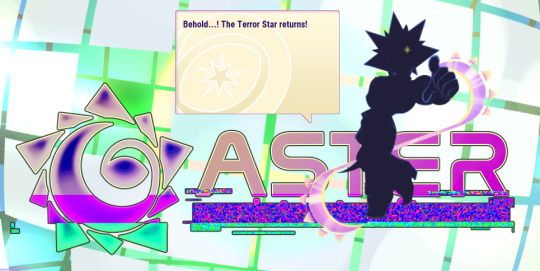

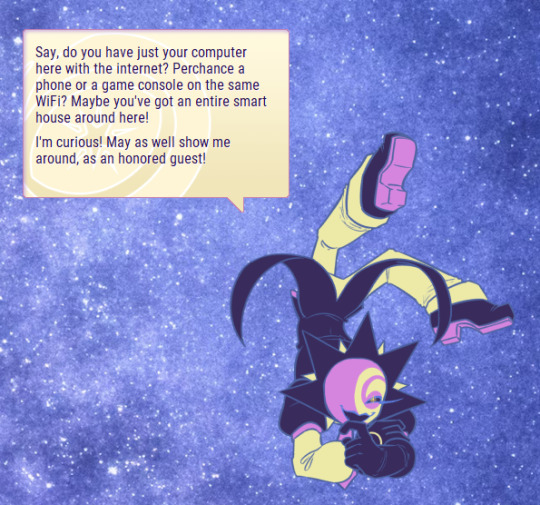

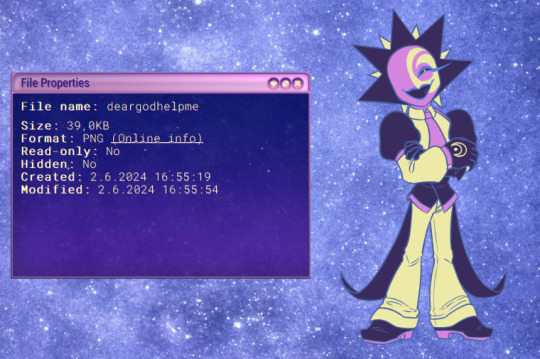
(contents of this post are mirrored in website linked above, check out that page too!)
On a random browsing session, you come across a name you've only heard offhandedly mentioned by some tech nerds: Aster Assistant Software. A download of a software announced and swiftly forgotten, just freely available in a distant corner of the internet. Thinking you may have found a piece of history, you quickly download it to see what that's all about. What you got instead, was an AI that seemingly never shuts up.
It's done! Continuation of Aster™️Assistant Software, though doesn't require you play it whatsoever. As most ukagakas, requires SSP to run. Link includes an explanation as to what those are and installation instructions.
Based on the Simplicity template by Zichqec. Using SSP on Windows is recommended.
Content warnings:
⚠️ Unreality: No 4th wall, meta themes.
⚠️ Photosensitivity: Character often vibrates in place, and has glitchy effects involving minor flashing lights. You will be asked whether you prefer these on or off.
Features:
A lot of yapping! Said yapping can be adjusted to be less or more frequent;
Longer yapping, giving a bit of insight into Aster's journey;
A little bit of insight on the digital world from the perspective of a living software*;
Capacity to be bothered, just a little bit;
Basic display of file and folder properties, with a little bit of information about some common file formats;
Basic sound playback, if you need to check a file in a jiffy;
May converse with a certain past iteration of itself (Make sure it's on latest version!);
For accessibility: you can reduce glitching effects to remove flashing lights, and turn of the shaking effect if necessary.
(* Information that isn't blatant sci-fi is partially based in publicly available information and personal experience. It may not be 100% accurate, and is provided purely for entertainment purposes. I am by no means an expert!)
Download here!
Instructions for installation are linked to in the page. Please follow them carefully! If anything seemingly goes off the rails, please let me know!
#ukagaka#english ukagaka#ukagaka ghost#desktop buddy#desktop toy#webcore#frutiger aero#cybercore#robot oc#ai oc#artists on tumblr#oc#original character#aster#aldebaran (aster)#CaelOS#'I only need a couple of months more' i said SURPRISE IT'S FUCKING DONE#edit 27.10: if the screenshots seem different it's because they are#i replaced some of these to reflect the tail change in his animations#the petting response is better in the old one so im leaving it in tho
197 notes
·
View notes
Text
My character ai year summary in a nutshell
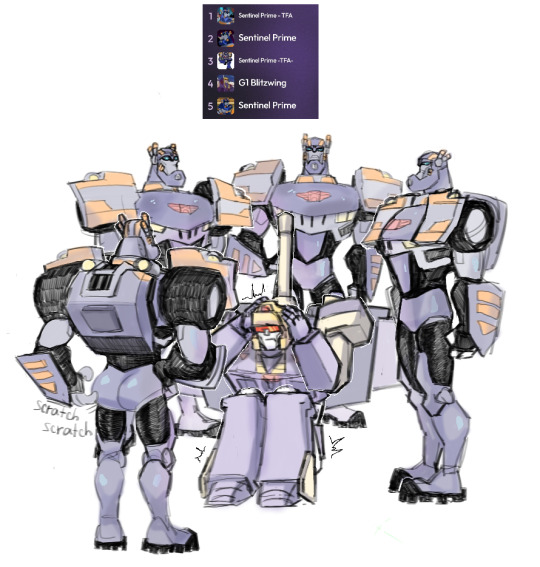
#transformers#tfa#transformers animated#transformers g1#tf g1#blitzwing#g1 blitzwing#tfa sentinel prime#sentinel prime#maccadam#character ai#art
899 notes
·
View notes
Text

Shenhe | Genshin Impact
AI Illustration 🎨
Original Work 💯
Re-blogging is highly appreciated 💕
#anime fanart#digital illustration#ai waifu#anime#anime woman#hanime#artists on tumblr#artwork#digital art#ai illustration#art#shenhe#genshin impact#genshin fanart#game character#anime character
483 notes
·
View notes
Text
Junko: How patriarchy, time, and perception influence ( female ) friendships:
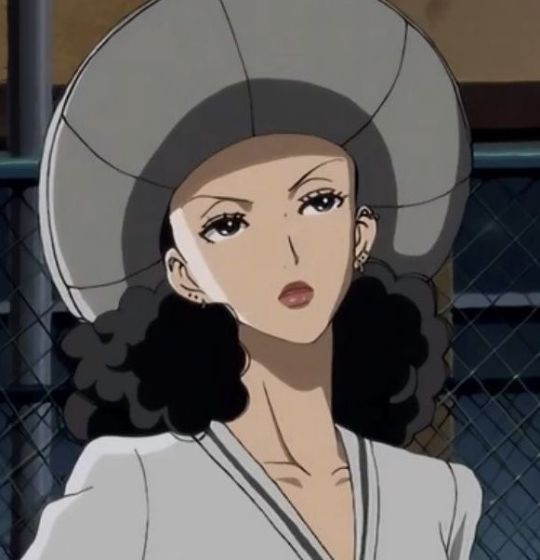
Junko is without a doubt a rather polarising figure within the Nana fandom. While some are inclined to view her as the epitome of a terrible friend, others find that there are aspects of her character that are not completely unreasonable. Some even argue that she is fully justified in her actions, interpreting them as a weary response to Nana Komatsu (Hachi’s) dependent and at times childish behaviour.
I personally find her to be an extremely intriguing case study on female friendships - it is rare to find a depiction of female friendships that deviates from the endlessly supportive, forgiving, and nurturing portrayals of female relationships. Often times women are not as forgiving and sweet to each other as is often idealised in popular media, with dynamics often being fraught with internalised misogyny, societal perceptions, past experiences, and unhealthy attachment - so it is refreshing to see such a realistic, unorthodox, and complex portrayal of relationships dynamics between women—an topic that is often underrepresented and undervalued, yet crucial in order for people of any age to reflect on their own friendships and the factors that shape their beliefs and behaviours within them.
Firstly, I think that there is no point in disputing that Junko, in her own, often unconventional way, cares about Hachi. Throughout the early episodes and chapters of Nana, Junko frequently steps in to protect and comfort Hachi when she thinks the situation calls for it. This can be seen when she immediately leaps into action when Hachi breaks down in tears, drunk and distraught over memories of Asano in Episode 2, calming her down. This concern is seen again when Junko berates Shoji for hurting Hachi’s feelings and leaving Hachi alone in an unfamiliar place before rushing out to go find her. When Junko learns that Hachi plans to move in with Nana Osaki, who was practically a stranger at the time, she tries to convince (scare) Hachi into reconsidering the decision, concerned with how Hachi would manage and what kind of person Nana would turn out to be. Accepting defeat when Hachi stayed steadfast in her decision, she challenged (Hachi’s words) Yasu, trying to support Hachi by passive aggressively asserting Hachi’s right to the apartment when Hachi failed to do so to her standards.
Infantilisation and stifling growth
However, Junko’s protectiveness often crosses the line into infantilisation, an action which is a mixture of both care for Hachi and an unconscious subscription to societal perceptions of ‘femininity’, which ends up doing more harm than good.
Ai Yazawa makes a point of emphasising that Junko has known Hachi for a long time - she is familiar with her romantic struggles and emotionally dependent tendencies. But Yazawa also shows us from the start as well that Junko is immalleable. She is a character that does not bend to displays of emotion or whims - a foil to Hachi’s very passionate and dreamy personality. It becomes apparent from their interactions that Junko, after having been around Hachi a long time, internalised how Hachi behaves and acts to the point where she sees these traits as innate to Hachi as opposed to behaviours that have developed and formed over time. This strongly held perception of Hachi becomes a problem, as instead of encouraging growth ( which is what every healthy friendship accepts and promotes), Junko reinforces these observed traits, often treating Hachi as if she were a younger sibling or even a child. She seems “relieved” when someone else is there to “take care” of Hachi and even makes decisions on her behalf, such as revealing Hachi’s crush on Shoji despite Hachi making a conscious decision to not be romantically involved in anyone, assuming that Hachi does not have the scope to actually achieve the emotional goals she sets for herself.
This dynamic consequently stifles and hinders Hachi’s ability to grow as an independent person throughout the anime, as Junko continues to see her through the lens of their shared past rather than as a peer. Even when Junko chastises Hachi for her lack of independence, she paradoxically expresses relief when someone else can ‘step in’ to care for her. This cycle of infantilisation keeps Hachi trapped in a dependent role within her friendships, and Junko’s inability to adjust her perception only reinforces these traits in Hachi. How people around you perceive and treat you influence how you subconsciously view yourself, and in Hachi’s case, she would see herself through Junko’s eyes as exasperating and hopelessly dependent. While Junko could very well believe her treatment stems from a deep and intimate understanding of Hachi, she in fact implies, most likely unintentionally, that Hachi is not capable of better. Junko's habit of infantilising Hachi repeatedly yet chastising her for the very thing Junko validates puts her in an endless pattern of being enabled, but not giving the genuine support when she does attempt to break the cycle.
Internalised misogyny and and complicity to the status quo
At the root of Junko’s behaviour there is a subtle form of internalised misogyny that permeates throughout her interactions with Hachi. Hachi’s personality is characterised by dreaminess, emotionality, and dependence, and aligns with traditionally "feminine" traits that patriarchal societies often devalue. She is romantic, frivolous and dependent, and Junko, in contrast, is portrayed to be and see herself as more pragmatic and career-oriented, which she is shown to be aware of and even proud of in the anime and manga. She firmly corrects Hachi when Hachi hopes she will give up on her dreams of art school in Tokyo, and pursues her passions and career with dedication throughout the anime. Her more modern lifestyle ( living unmarried with her boyfriend and striving for her dream career) contrast heavily with her more conservative mindset with gender - through interactions between Hachi and Junko, we can see that she seems to have adopted a more ‘masculine’ role between the two of them, acting as the voice of reason and logic, traits which are stereotypically associated with masculinity ( haha). You can see that this patriarchal compartmentalisation of personality traits is something that Junko had internalised growing up through her interactions with Hachi, perceiving Hachi as hopeless and in need due to her personality, when in actuality we find out later that Hachi is perfectly capable of making decisions herself, and managing difficulty by herself (with more resilience that others can muster). While she surely does not always make the best options, she is able to adapt and persevere - not exactly the actions of a hopelessly dependent person.
This is a greatly nuanced decision on Yazawa’s front, as she perfectly depicts how growing up in a patriarchal society does not only influence male and female relations, but all - due to Junko growing up in a patriarchal society where women with ‘feminine’ traits are simultaneously taken care of and condescended, she too mimics and appropriates such beliefs and actions. The status quo in such societies ( like Japan in the time the manga is set) are rigidly upheld yet at the same time result in the mocking and contempt of women who adhere to or fit the mould shaped and maintained by the same people who patronise them - and often times women are complicit in upholding harmful patriarchal ideals. I think this is a refreshing (and depressingly realistic) depiction of relationships between women, as it perfectly captures the delicate and painful cognitive dissonance between caring for someone and not doing what is in their best interest due to internalised misogyny.
A large aspect of internalised misogyny is putting male approval and attention on a pedestal, and Junko depicts such influences as well when she compares her love life to Hachi’s. She flaunts her alleged ability to form platonic male friendships without becoming romantically involved, ironically right before quickly entering into a relationship with Kyosuke. Junko then feels the need to justify her own quick decision of sleeping with and getting with Kyosuke to Hachi, showing a unconscious adherence to the notion that as a woman, getting with or attached to a relatively unknown man simply because of a desire to is a disdainful trait, and one that Junko makes a conscious effort to differentiate herself from - and not for Hachi. Hachi did not judge or even understand why Junko made such a fuss explaining; Junko’s attempts were more a form of self reassurance that she is not like the ‘others’ who are deemed undesirable and whorish ( a belief she holds due to her close interaction with patriarchy growing up). Junko is in fact not so different from Hachi, from what we can see from her actions in the anime and manga. We are told by her she does not attach herself romantically to men quickly, yet in the first instance possible we see otherwise. We see her look down on Hachi’s air-headed desire for a stereotypical, domestic relationship with a reliable man, while staying with Kyosuke throughout all the anime and manga, using him as a mode of support and guidance as well as a romantic and seemingly life partner. Her contempt of Hachi at times seems to be a reflection of her own insecurities with the aspects of her personality that do not fit the mould she wants - the aspects of her personality she was raised to see as less valuable and worthy and therefore grew up and internalised.
Junko’s internalised misogyny is also apparent in her loyalty to the men in her life, particularly in her defence of Shoji after he cheats on Hachi. Instead of holding Shoji accountable, Junko places the blame on Hachi, telling her that it was her fault for being too dependent, too self absorbed - too absent ( the very traits she was telling Hachi to adopt). This reaction reflects Junko’s struggle to justify her friendship with Shoji through her own internalised belief that women are responsible for men’s behaviour ( a common belief in patriarchal societies to take accountability away from men, instead vindicating and blaming the women involved). This scene serves to reveal Junko’s desire to preserve her own relationships and avoid conflict with male peers - by justifying Shoji’s actions, she maintains the comfort and security of her social circle, which includes her boyfriend Kyosuke, who is also Shoji’s best friend ( again rather similar to Hachi and her want of companionship) - she puts her male centred relationships on a pedestal at the expense of her female friendships and Hachi’s wellbeing.
Junko’s character serves as a window into the nuanced ways internalised misogyny, perception, and shared history can influence female friendships. Her dynamic with Hachi is shaped by her rigid perception of Hachi’s weaknesses and her own internalised biases about what traits are "acceptable" in women. While Junko is portrayed as a capable, independent woman—someone Hachi and other women can in some ways even looks up to—her patronising attitude ultimately undermines the potential of their relationship. Junko’s failure to see Hachi as an evolving, autonomous person perpetuates a cycle of dependence, preventing both women from growing as individuals and as friends, with Junko feeling equally responsible and burdened by Hachi but not allowing the relationship to develop beyond how it was in the past.
By portraying Junko, one of Hachi’s closest friends, as such a complex, multidimensional character, Ai Yazawa offers a compelling critique of the ways in which societal norms and internalised beliefs can distort relationships between women, and bring attention to topic that is often neglected yet experienced and lived by women universally. Junko’s story illustrates that it is not only overt sexism that influences women’s lives but also the more subtle, internalised forms of misogyny that shape how women perceive themselves and each other, and the pitfalls of relationships that remain stagnant in the past instead of allowing both parties to grow and flourish.
#nana osaki#manga nana#nana komatsu#nana anime#nana#nana and hachi#anime analysis#anime#anime and manga#manga analysis#manga#nana manga#nana hachi#hachi#hachiko#ai yazawa#ren honjo#takumi#junko saotome#media analysis#media literacy#character analysis#anime gif
222 notes
·
View notes